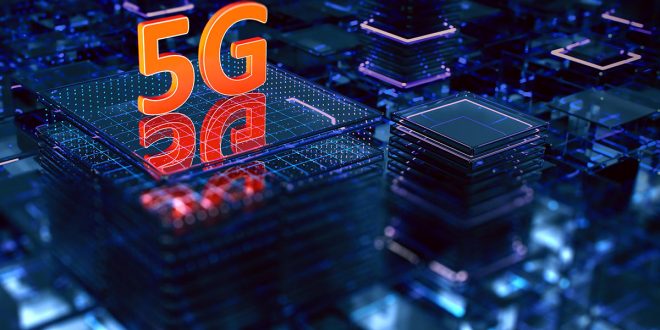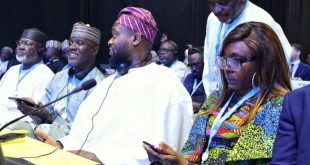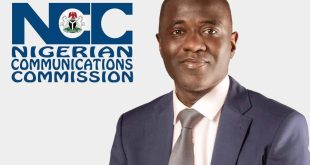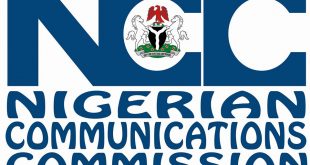It is crystal clear that any time soon the deployment of the 5G technology will take effect as the Nigerian Communications Commission (NCC) has tightened a supposed loose end that could have derailed or stopped the transition, Agbede Alomoyo writes on the journey to the network.
No network deployment generated much controversy as much as 5G network in Nigeria. The deployment of the network was erroneously linked to the outbreak of COVID-19, even when there was no evidence to prove the belief.
But as more Nigerians get a better understanding of the network with technology experts across the globe helping to discard the erroneous beliefs, more people now understand that there is no nexus between the 5G and the pandemic that has claimed millions of lives across the globe and destroyed economies.
Today with the increasing level of awareness, many can’t wait for the deployment of the network following the conviction that its deployment would usher in a brighter and more promising future for the digital economy.
The Story gathered that the earlier misconception about the technology has been dealt with, 5G technology trials have been conducted, spectrum for deployment is now available, a committee to auction the spectrum has been inaugurated, and the country is upbeat to have 5G provide huge support for FG’s digital economy drive.
What the 5G Revolution entails
5G, which is the fifth-generation technology network, is the advanced form of 2G, 3G and 4G, which Nigeria currently operates. Large numbers of advanced countries of the world have adopted the 5G network, while others are considering its adoption in the next few years, because of its high connectivity speed that will drive new technologies like Artificial Intelligence (AI), Machine Learning (ML) and Internet of Things (IoTs), among others.
5G is designed to be a system that will bring flexibility to mobile, fixed and broadcast networks and support more extensive data requirements. The technology will impact the way interactions are done by enabling in some cases, unforeseen business models, enhanced lifestyles all resulting in increased productivity.
Slow deployment in Sub-Sharan African
Despite its identified benefits, Ericsson Mobility Report for June 2021, showed that 5G network remains slow in sub-Saharan Africa (SSA), but it is expected to tick in the region over the next few years.
Although 5G subscriptions were still below one percent of total subscribers in SSA at the end of 2020, Ericsson expects “discernible volumes of 5G subscriptions” by 2022, reaching about seven percent in 2026. The MoU signing was the high point of discussions by the two organizations on how to relocate the NG-1R satellite of NigComSat to the standard C-band 300MHz (3.9GHz – 4.2GHz) portion of the band, which is considered more suitable in terms of satellite service offering because of the advantage of cheaper terminal devices for end-users.
Accordingly, such relocation will leave the non-standard C-band 400MHz (3.5GHz – 3.9GHz) portion of the band for 5G use while the cost of relocating the NG-1R is expected to be offset from the proceeds of the auction of the 5G spectrum.
Speaking at the signing-in ceremony, the Executive Vice Chairman of NCC, Prof. Umar Garba Danbatta, said the Commission initiated negotiations with NigComSat to make some adjustments to its satellite operation and release part of its spectrum holding in the band to facilitate the deployment of 5G in Nigeria.
“Among the Frequency Spectrum bands used for 5G, the C-band (3.4GHz – 3.9GHz) stands out because its balancing point between coverage and capacity provides the perfect environment for 5G connectivity. The C-band is most suitable and appropriate for immediate deployment of 5G services taking into consideration availability of device ecosystem with 60-70 percent of global commercial 5G network deployment currently in the band, thus the importance of this Spectrum for early deployment of 5G services in Nigeria cannot be overemphasized.
“For optimal 5G service performance, an average of contiguous 100 MHz of spectrum in the C-band is required by an Operator. However, in Nigeria, only 120 MHz of the band (3.4 – 3.52) GHz is available for mobile services while the remaining 680 MHz (3.52 – 4.2) GHz of the band is used by NigComSat (NG-1R) satellites,” he said.
5G: NCC’s readiness and the rest of us
As the NCC announced it’s readiness to the deployment of the much-anticipated network having carried out every necessary step and process for the successful deployment of the network, the onus now lies on Nigerian subscribers to begin to plan on how best to explore the many benefits inherent in the network to enhance the businesses and improve the nation’s digital economy.
There’s no doubt that the internet speed will increase why so many technological innovations would be enabled with the network. Certainly, in any innovation, some people will be made as some more millionaires will emerge. The question now is who will be the 5G millionaire?
 The Story Your path to the story
The Story Your path to the story












